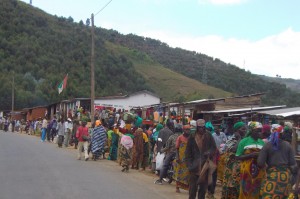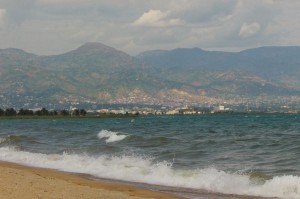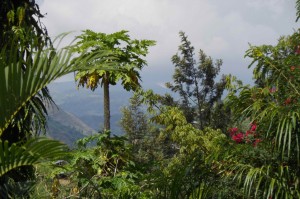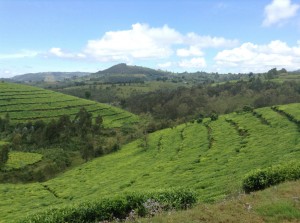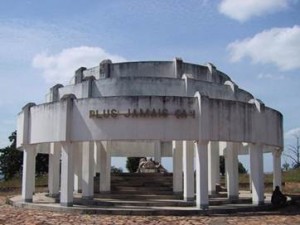
The Burundi
Geographical location
Burundi is located in east-central Africa. Although 55 times smaller than the province of Quebec, the population of Burundi is about 10,000,000. It is wedged in the east and south by Tanzania, Democratic Republic of the Congo in the west and Rwanda in the north. It has no access to an ocean but has a long west waterfront on beautiful lake Tanganyika, one of the deepest lake in the world. Its population is composed of three (3) ethnic groups, the Hutus (80%), the Tutsis (19%) and the Twas (1%). Bujumbura, the capital, is by far the most populated city. The official languages are Kirundi, French and Swahili is also spoken. Burundi is divided into 17 provinces, 117 communes and 2638 ‘’collines’’ hills.
Most people identify themselves by the ‘’colline’’ where they live.
Civil war
Burundi became a German colony in 1903 and was passed to Belgian colonial powers in 1923. Finally Burundi regained its independence in 1962. From then on, it has been plagued by repetitive genocides (1965, 1969, 1972, 1988, 1992, 1993). These wars took many lives (300,000 in 1993) and left disastrous human and material consequences on its population. Some say these conflicts where ethnical others view them as political. However, it cannot be denied that this population, who had a history of intermarriages and who shared many cultural characteristics, were divided. Ethnical base injustices and discriminations are at the root of the adversity that has plague the country and that the people of Burundi continue to bear. Those who have fled the country came back mostly to Bujumbura, the capital. Consequently the number of people has increased significantly in the capital. In the outskirts, poverty is everywhere; the people that returned were mostly farmers or cattle breeders in their former regions. They now have no work therefore any income to sustain the needs of their families.
The people
They are good, courageous and friendly people who have suffered a great deal. Today, most of the Burundi population has opted for reconstruction instead of focusing on revenge. Yet not sufficient, they appreciate the assistance provided by other countries. Foreign visitors feel welcome and well respected. The countryside, composed of green hills, sees its roads bordered by men transporting, on their bicycles, big bags of coal, bananas, pipes and piles of bricks. Women, dressed in colorful clothing, proud to show of their apparel, carry heavy loads on their heads with often, a child on their back.
Even while working…
On their heads or in hand, children carry valiantly a can of 5 litres or more of water.
Hope
After so many years of civil wars, it is hard to imagine how one can live in such insecurity… Let us also think of the plight of the children, especially the 830,000 children living in extreme poverty, severely affected by the aftermath of the civil war, but also by the AIDS pandemic…
After the lost of about 300,000 lives and the displacement of roughly 1.5 million people in 13 years … try to imagine every day life. But there is hope and it is to support that will to rebuild the country that “My School Bag” dedicate itself since 2006.
To rebuild infrastructure, to restore confidence and to promote the wish to create projects and jobs; we must start by making education available to all.
The economy
The economy is primarily one of agriculture and cattle farms. Coffee is the most important export. There is also cotton and tea. Producing food is the prime activity. They are at work to feed the people…The country annual gross revenue is about $20 per habitant.
It is estimated that 81.3% of the people live with less than $1usd per day and the rate of school dropout is 43.8% (numbers from PNUB Burundi)
Peace
Peace will be possible only when each and every one will benefit from more justice, a real equitable distribution of wealth and more freedom. We believe this to be possible only if the young people have access to education.
http://www.bbc.com/news/world-africa-13085064
Wikipedia: http://en.wikipedia.org/wiki/Burundi

